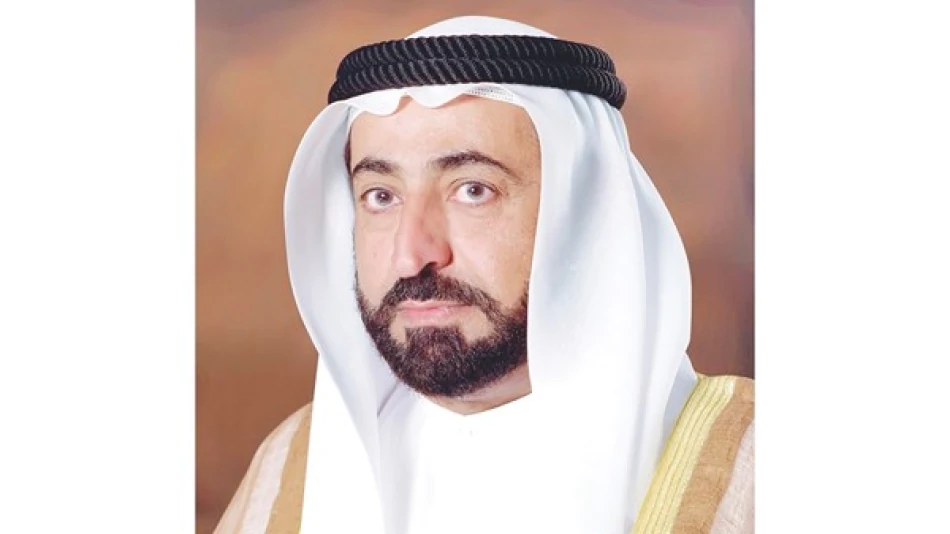
Sharjah Ruler Approves $91M Housing Aid for 431 Families, Boosting Emirate's Livability
Sharjah Allocates $91 Million to Tackle Housing Crisis with Emergency Support Program
The Emirate of Sharjah has approved a substantial 335 million dirham ($91 million) emergency housing support package targeting 431 families in critical living situations, signaling the UAE's proactive approach to addressing housing affordability challenges that have intensified across the region in recent years.
Comprehensive Relief for Housing-Stressed Families
Sheikh Dr. Sultan bin Mohammed Al Qasimi, Ruler of Sharjah and member of the UAE's Supreme Committee, has authorized the latest tranche of the emirate's housing support program, specifically designed for families facing acute accommodation crises. The initiative will provide ready-built government housing units as grants rather than loans, removing financial barriers for the most vulnerable residents.
The program addresses four distinct categories of housing distress: 133 families currently paying rent, 201 families living in overcrowded conditions with relatives, 61 families residing in inherited properties with complex ownership issues, and 36 families in structurally unsafe or deteriorating homes.
Strategic Response to Regional Housing Pressures
This housing intervention comes as the UAE grapples with significant residential market pressures following rapid population growth and economic expansion. Dubai and Abu Dhabi have experienced rental increases of 20-30% in some areas over the past two years, creating ripple effects across neighboring emirates like Sharjah.
The decision to provide grants rather than subsidized loans distinguishes Sharjah's approach from typical housing assistance programs. This model eliminates long-term debt burdens for recipients while ensuring immediate housing security—a particularly important consideration given the diverse income levels among UAE residents.
Economic and Social Impact
Immediate Market Effects
The program's $91 million allocation represents a significant government investment in housing stability, potentially reducing pressure on Sharjah's rental market by removing 431 families from the private rental sector. This could provide modest relief to rental demand while supporting broader economic stability for affected families.
Long-term Housing Strategy
Sharjah's approach reflects a broader trend among Gulf states toward direct government intervention in housing markets. Similar to Saudi Arabia's housing ministry programs and Qatar's social housing initiatives, the UAE is increasingly viewing housing security as essential infrastructure rather than a purely market-driven commodity.
The program's focus on ready-built units suggests existing government housing stock, indicating pre-planned capacity rather than reactive construction. This preparation demonstrates sophisticated planning for housing demand fluctuations.
Regional Context and Implications
The initiative positions Sharjah as a leader in addressing housing affordability within the UAE federation. While Dubai focuses on luxury development and Abu Dhabi emphasizes large-scale urban planning, Sharjah's targeted support for middle and lower-income families fills a crucial gap in the regional housing ecosystem.
This program may influence housing policy discussions in other emirates, particularly as the UAE continues attracting international residents and investors. The success of Sharjah's grant-based model could provide a template for addressing housing accessibility challenges across the broader Gulf region.
For the 431 families involved, the program represents immediate relief from housing uncertainty and potential long-term wealth building through property ownership—a significant economic mobility opportunity in the UAE's competitive market environment.
Most Viewed News

 Layla Al Mansoori
Layla Al Mansoori






